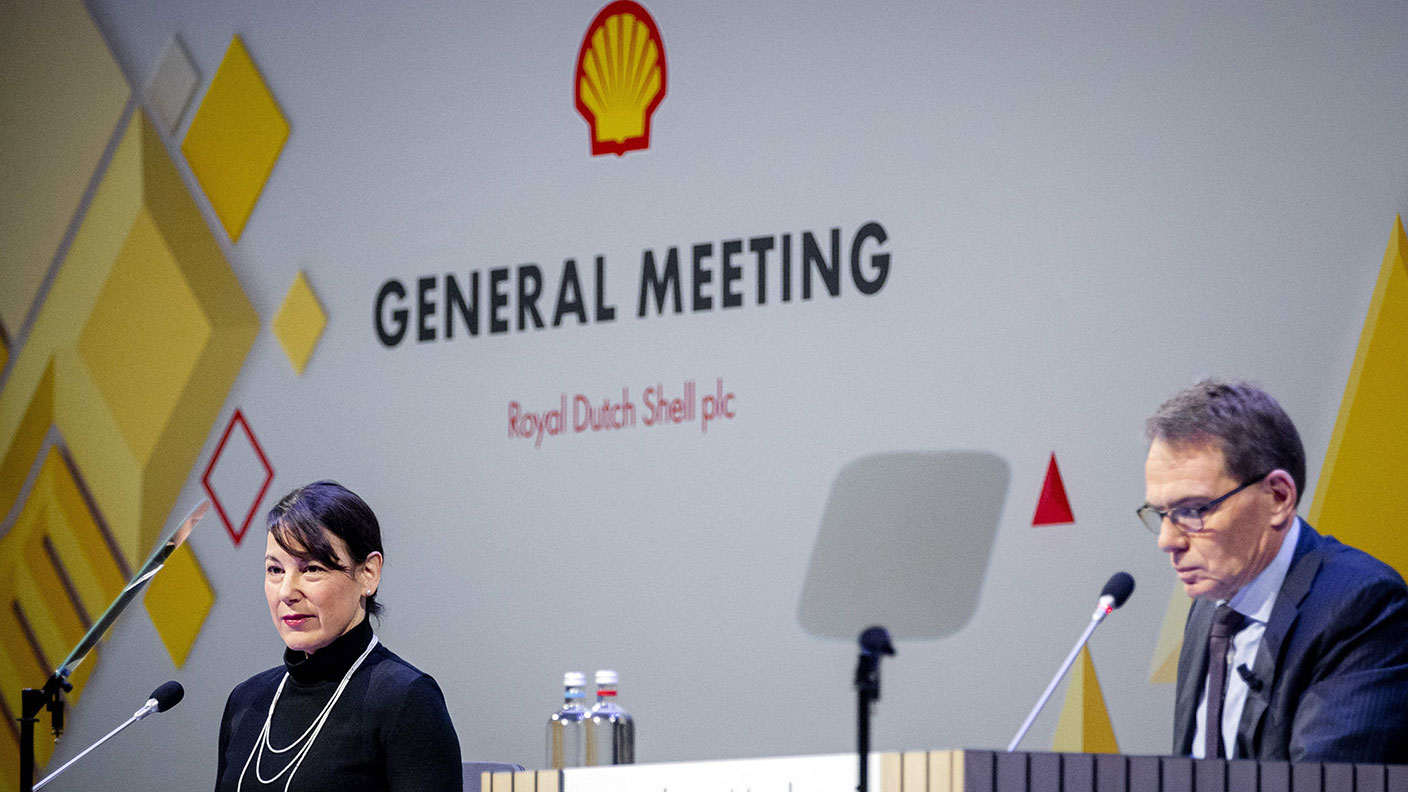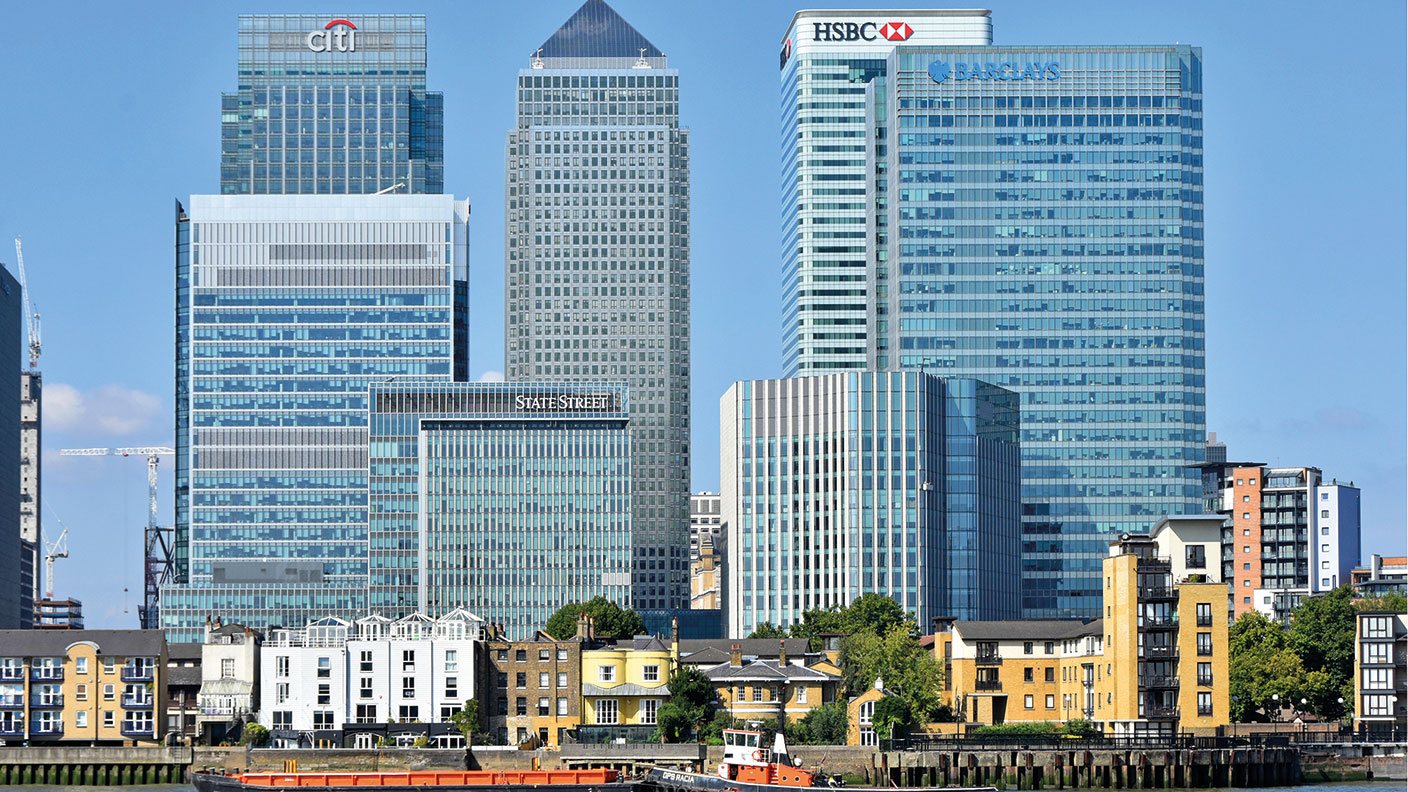Get the latest financial news, insights and expert analysis from our award-winning MoneyWeek team, to help you understand what really matters when it comes to your finances.
You are now subscribed
Your newsletter sign-up was successful
Want to add more newsletters?

Twice daily
MoneyWeek
Get the latest financial news, insights and expert analysis from our award-winning MoneyWeek team, to help you understand what really matters when it comes to your finances.

Four times a week
Look After My Bills
Sign up to our free money-saving newsletter, filled with the latest news and expert advice to help you find the best tips and deals for managing your bills. Start saving today!
Barclays Bank is to pay a 290 million pound fine following an investigation by UK and US regulators into manipulation of inter-bank lending rates.
The bank's top executives, including Chief Executive Bob Diamond, have agreed to waive their bonuses this year as a result.
City watchdog, the Financial Services Authority (FSA), said Barclays' regulation breaches were "serious, widespread and extended over a number of years".
MoneyWeek
Subscribe to MoneyWeek today and get your first six magazine issues absolutely FREE

Sign up to Money Morning
Don't miss the latest investment and personal finances news, market analysis, plus money-saving tips with our free twice-daily newsletter
Don't miss the latest investment and personal finances news, market analysis, plus money-saving tips with our free twice-daily newsletter
It accused the bank of having inadequate systems and controls in place until June 2010 and of failing to review its systems and controls at a number of appropriate points.
The FSA's portion of the fine, £59.5m, is the biggest fine the FSA has ever handed down.
Had the bank not co-operated with it, the fine would have been £85m, the regulator said.
The remainder of the penalty is owed to the U.S. Commodity Futures Trading Commission and Department of Justice.
Barclays staff were found to have manipulated submissions for the London Interbank Offered Rate (Libor) and the Euro Interbank Offered Rate (Euribor) to benefit the bank's interest rate derivatives traders.
The FSA also said Barclays had reduced its Libor submissions during the financial crisis as a result of senior management's concerns over negative media comment.
Libor and the Euribor are benchmark reference rates that indicate the interest rate that banks charge when lending to each other.
The FSA's investigation details the following exchange over email when 'Trader C' requested low one month and three month US dollar LIBOR submissions at 10:52 am on 7 April 2006, shortly before the submissions were due to be made:
"If it's not too late low 1m and 3m would be nice, but please feel free to say "no"... Coffees will be coming your way either way, just to say thank you for your help in the past few weeks".
A Submitter responded "Done...for you big boy".
Tracey McDermott, acting director of enforcement and financial crime, said the integrity of rates such as Libor and Euribor was of fundamental importance to both UK and international financial markets.
"Firms making submissions must not use those submissions as tools to promote their own interests," she said.
"Making submissions to try to benefit trading positions is wholly unacceptable; this was possible because Barclays failed to ensure it had proper controls in place.
"Barclays' behaviour threatened the integrity of the rates with the risk of serious harm to other market participants," she said.
Barclays Chief Executive, Bob Diamond, said he was sorry that "some people acted in a manner not consistent with our culture and values".
"To reflect our collective responsibility as leaders, Chris Lucas, Jerry del Missier, Rich Ricci and I have voluntarily agreed with the board to forgo any consideration for an annual bonus this year," he said.
Price manipulation is a severely damaging issue and confidence of clients can be lost quickly when price transparency is brought into question, according to Joshua Raymond, Chief Market Strategist at City Index.
"This is an embarrassment for Barclays and ultimately could lead to the banks clients asking questions about whether they themselves have been mistreated also and start shopping around for alternatives," he said.
Get the latest financial news, insights and expert analysis from our award-winning MoneyWeek team, to help you understand what really matters when it comes to your finances.
MoneyWeek is written by a team of experienced and award-winning journalists, plus expert columnists. As well as daily digital news and features, MoneyWeek also publishes a weekly magazine, covering investing and personal finance. From share tips, pensions, gold to practical investment tips - we provide a round-up to help you make money and keep it.
-
 Should you buy an active ETF?
Should you buy an active ETF?ETFs are often mischaracterised as passive products, but they can be a convenient way to add active management to your portfolio
-
 Power up your pension before 5 April – easy ways to save before the tax year end
Power up your pension before 5 April – easy ways to save before the tax year endWith the end of the tax year looming, pension savers currently have a window to review and maximise what’s going into their retirement funds – we look at how
-
 Britain’s most-bought shares w/e 12 August
Britain’s most-bought shares w/e 12 AugustNews A look at Britain’s most-bought shares as of 12 August, providing an insight into how investors are thinking and where opportunities may lie.
-
 S4 Capital – a company that still has much to prove
S4 Capital – a company that still has much to proveTips Audit delays set shares tumbling at advertising agency S4 Capital. It needs to show it can turn growth into profits, says Bruce Packard.
-
 When to buy shares in NatWest, Britain's worst bank
When to buy shares in NatWest, Britain's worst bankTips Rising interest rates should lift profits for the banking sector if inflation doesn’t get out of control, says Bruce Packard.
-
 How UK banks went from Big Bang to universal failure
How UK banks went from Big Bang to universal failureCover Story The 1986 deregulation shook up the banks, but the all-in-one model that it created is bad for customers and investors. Specialists do a better job – as the real fintech winners are showing, says Bruce Packard
-
 Activist investing: forget hedge funds, leave it to private investors
Activist investing: forget hedge funds, leave it to private investorsOpinion Demands from “activist investor” hedge funds are every bit as short-termist as the management teams they are trying to shake up, says Matthew Lynn. Private investors will take a long view.
-
 HSBC’s profits surge – but will the share price?
HSBC’s profits surge – but will the share price?News Pre-tax profits at banking giant HSBC rose from $1.1bn last year to $5.1bn in 2021, but the share price remains depressed.
-
Three solid stocks to ride the UK’s rapid recovery
Tips Professional investor James Henderson of the Lowland Investment Company, picks three of his favourite UK stocks that he thinks will benefit from the post-pandemic recovery.
-
 Financial stocks are set to fly as we recover from the pandemic
Financial stocks are set to fly as we recover from the pandemicCover Story The banking and insurance sectors are probably the world’s least popular apart from coal mining, says Jonathan Compton. The industry may face pervasive change, but the stocks look too cheap

